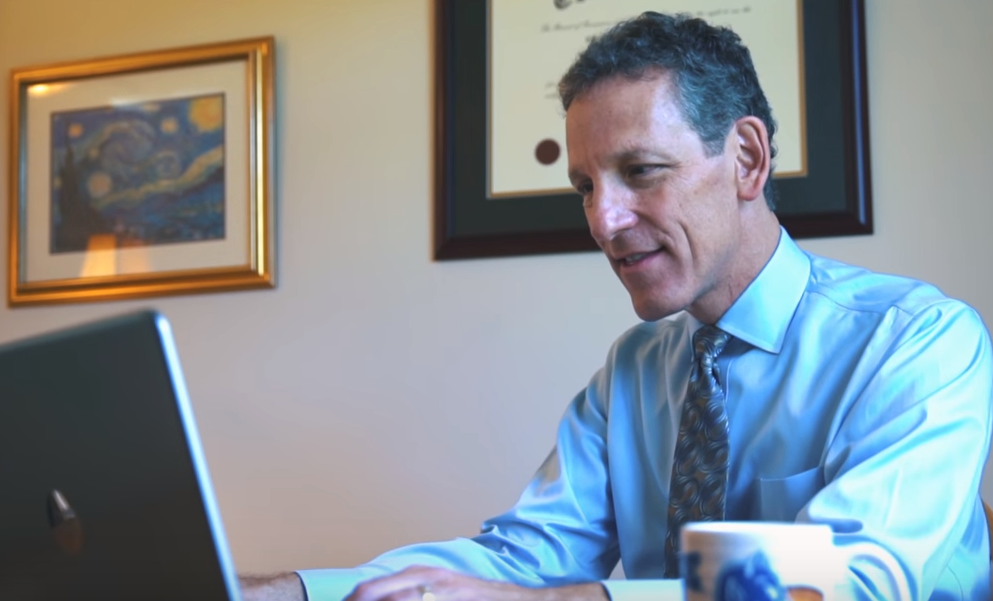Does FOMO Hold You Back?
What are you missing out on? Probably not as much as you think.
But in our hyper-connected world and its 24/7 news cycle, the Fear of Missing Out (FOMO) causes many people to focus more on what they’re not doing than on what they are doing. That can lead to some bad decisions and some missed opportunities to improve their Return on Life.
Here are three ways that FOMO can distort your perspective on what matters most.
Losing perspective on your portfolio.
The vast majority of investors who build wealth through the markets do so by making consistent contributions that fund a balanced, diversified financial plan. That might not sound as exciting as jumping on the latest social media investment craze. But over time, this tried-and-true strategy is a lot more reliable than trying to take shortcuts.
For example, the “meme stock” craze boosted shares of GameStop and AMC in 2021. But those companies crashed back to earth in 2022. (See this blog as well.) And while all securities experience ups and downs, many folks suffering from FOMO “bought high” right before the meme stock bubble burst or overinvested in these trendy stocks instead of diversifying into traditional brokerage or retirement accounts.
Will some of these FOMO investments rebound and turn profits over time? Maybe. But if you treat investing like a slot machine, you may “miss out” on the ability to build a strong foundation for long-term financial growth.
Losing perspective on your time.
According to Statista, in 2022 the average person spent 147 minutes per day on social media. That’s over two hours a day! As someone who doesn’t spend much time on social media, I can only say WOW!! Some of that time educates us about what’s happening in the world, connects us with friends and family, and brings an extra smile to our coffee breaks.
But a big chunk of those 147 minutes is spent seeing other people do things we’re not doing. Not surprisingly, more and more scientific studies are finding a link between high social media use and FOMO. And when we’re looking at exquisite snapshots of meals we can’t afford or tropical vacations we can’t find time for, that can lead to feelings of low self-worth and even depression.
Rather than worry about what everyone else is doing, it might be worth reexamining your own daily schedule to make sure you’re spending time on the things that matter most to you. If you’ve always hated running, training for a half-marathon just because your friends are will only make you – and them – miserable. Instead, consider unplugging at the beginning or end of every day to do something you love, whether that’s half an hour of yoga or reading an extra bedtime story to your children. I read all seven of the Harry Potter books out loud to our oldest son. That’s an experience both of us will always remember. Using your time your way will be much more fulfilling than eating food you don’t really like, planning for a trip you don’t really feel like taking, or buying a boat you’ll never use enough.
Losing perspective on Return on Life.
As we age, FOMO can take on some complicated new dimensions. Seeing colleagues promoted ahead of you might make you worry that you’ve peaked in your career. Market fluctuations and global economic challenges might make you worry about the security of your retirement. Packing your kids off to college might make you worry about missing out on their lives.
Acknowledging, planning for, and celebrating all the important moments in your life is an essential part of our Life Planning Process. Looking back on the milestones you’ve achieved should fill you with pride and gratitude. Hopefully, those feelings can help you stay focused on the personal goals that you’ve laid out for the future, and the financial plan we’re working on together that will help you achieve them.
Here are the links to this week’s articles as well as a brief description of each:
1. The Art and Science of Spending Money.
When asked to recommend only one book discussing personal finance, my go-to choice remains Morgan Housel’s The Psychology of Money. Money is a complicated topic. The way we think about it can defy logic. The psychology of money goes beyond investing. Money can reveal things about people’s character and values. We often don’t know much about how people invest as it’s hidden from view. But we can more easily see how they spend. How you spend money can tell a lot about what you find valuable in life, whom you want to spend your time with, and much more. That means what it shows about us can provide greater insights than how you invest.
Each of us is different, making the topic of money even more fascinating. Rules that everyone must follow don’t exist either. While some spend more than they can afford, others who saved diligently throughout their working years sometimes find it hard to transition to spending mode once they retire. In this longer read, Housel shares a few things he’s noticed about the art of spending money. If you want to explore the first one – Your family background and past experiences can heavily influence your spending preferences – further, I suggest reading George Kinder’s The Seven Stages of Money Maturity. The book delves much deeper into this topic. I read it recently as I prepare for the next stage of my training to become a Registered Life Planner.
2. Life Lessons from 1,000 Years.
This article represents a novel way to learn from the wisdom of others. For his 32nd birthday, the author decided to ask those aged 90-99 that he knows along with the older grandparents or great-grandparents of his friends this question: “If you could speak to your 32-year-old self, what advice would you give?” He captured more than 1,000 years of life experience. The article includes 40 great suggestions. I won’t share any of them here. I recommend you check them out for yourself. Think about adopting the ones you like, too.
3. My Husband Controls the Money! (And Other Marriage Mistakes Women Make).
Apprise focuses on working with female-led households. The motivation behind this comes from what I witnessed growing up. This article shares the five financial biggest mistakes a divorce lawyer sees women make in marriage. Fortunately, you can avoid all of them.
I would add one more to this list that I saw before I launched Apprise. As stated in the article, every woman should have credit in her name. But she should also make sure that the bills get paid in a timely manner. In this case, the wife had her own credit cards. The problem was her husband paid the bills and controlled the purse strings. When they started having marital difficulties, he stopped paying her credit card bills. This severely damaged her credit. When she moved out, she had to get family help to rent a new home. Your credit matters when you rent, too. Fortunately, she had other family members that could help.
4. Five Types of Habits That Will Radically Change Your Life.
Many of us want to improve our mental well-being, our physical state, and our productivity. But we often fall short. We put off the things that would make those goals a reality. This article suggests the types of habits we can incorporate into our lives that can enhance our ability to achieve these goals. What kinds of habits should you implement to transform your life? Try these:
- Productivity habits
- Growth habits
- Health habits
- Social habits
- Self-care habits
The article also provides some examples of each.
5. Should You Die With Zero?
When it comes to saving for retirement, a child’s education, or something else entirely, we often worry about the size of our nest egg. Are we saving enough? According to research cited in this article, almost half of U.S. adults experienced “high” or “moderate” anxiety related to their level of savings. Believe it or not, this anxiety often gets misplaced. What’s that? Apparently, many individuals save too much. The article suggests that only about one in seven retirees withdraw principal from their retirement savings within a given year. The rest live off their investments – or less than what their investments earn annually.
Our practice continues to benefit from referrals from our clients and friends. Thank you for your trust and confidence.
We hope you find the above articles valuable. We would be happy to address any follow-up questions you have. You can complete our contact form if you would like to talk to us about financial topics, including your investments, creating a financial plan, saving for college, or saving for retirement. Once you do that, we will be in touch. You can also schedule a call or a virtual meeting via Zoom.
Follow us:
Please note. We post information about articles we think can help you make better money-related decisions on LinkedIn, Facebook, and Twitter.
Phil Weiss founded Apprise Wealth Management. He started his financial services career in 1987 working as a tax professional for Deloitte & Touche. For the past 25+ years, he has worked extensively in the areas of financial planning and investment management. Phil is both a CFA charterholder and a CPA.
Located just north of Baltimore, Apprise works with clients face-to-face locally and can also work virtually regardless of location.





